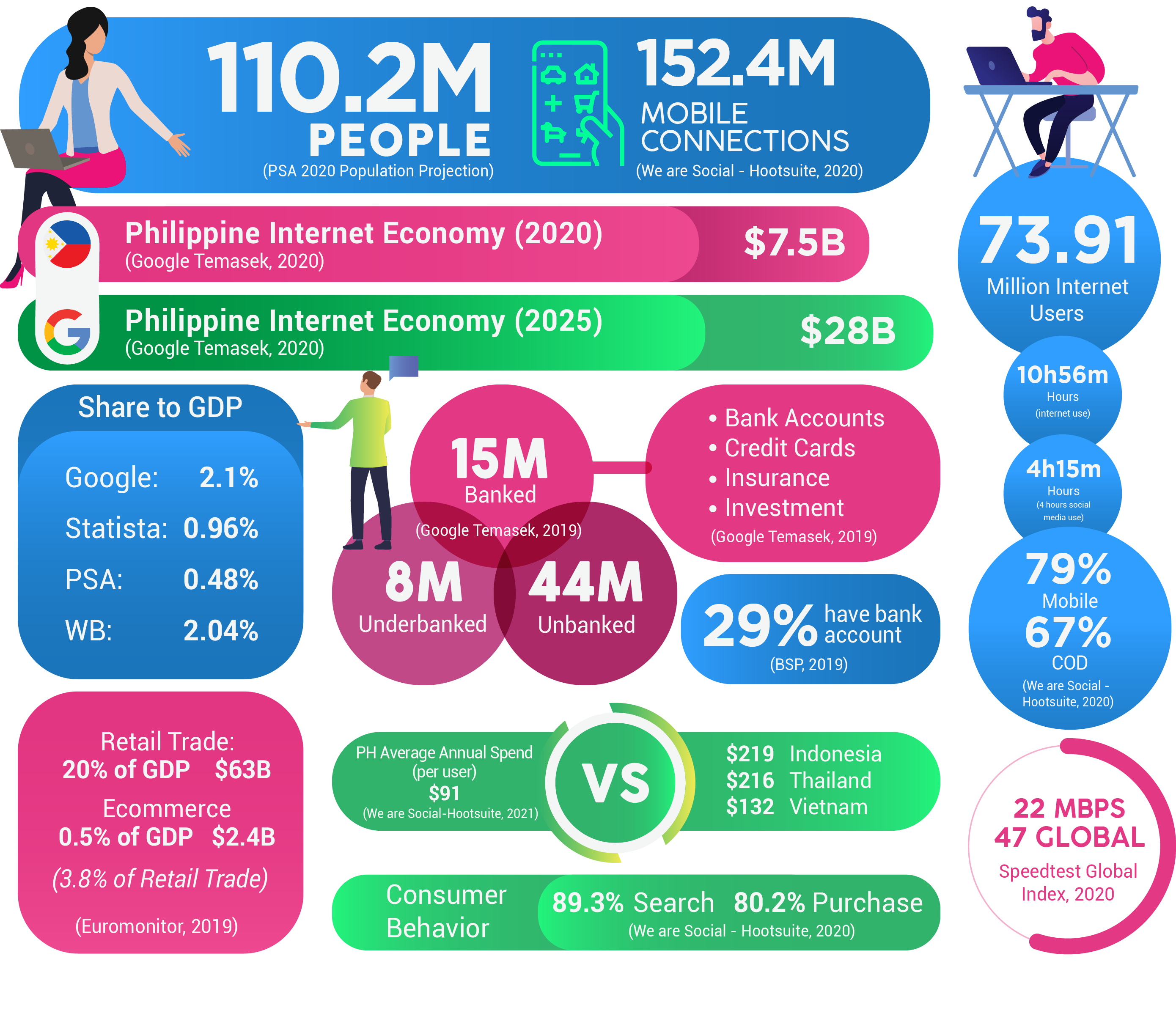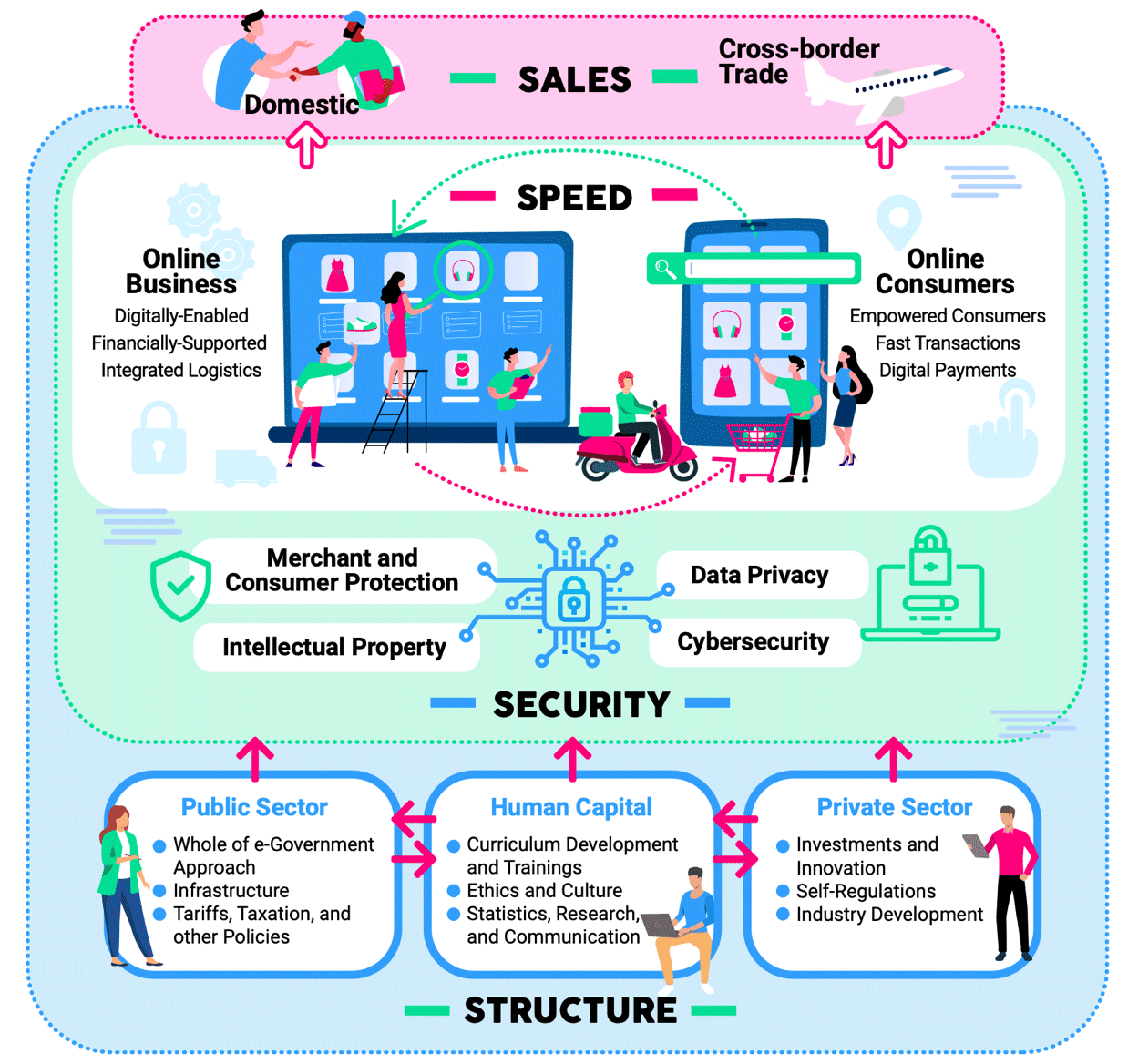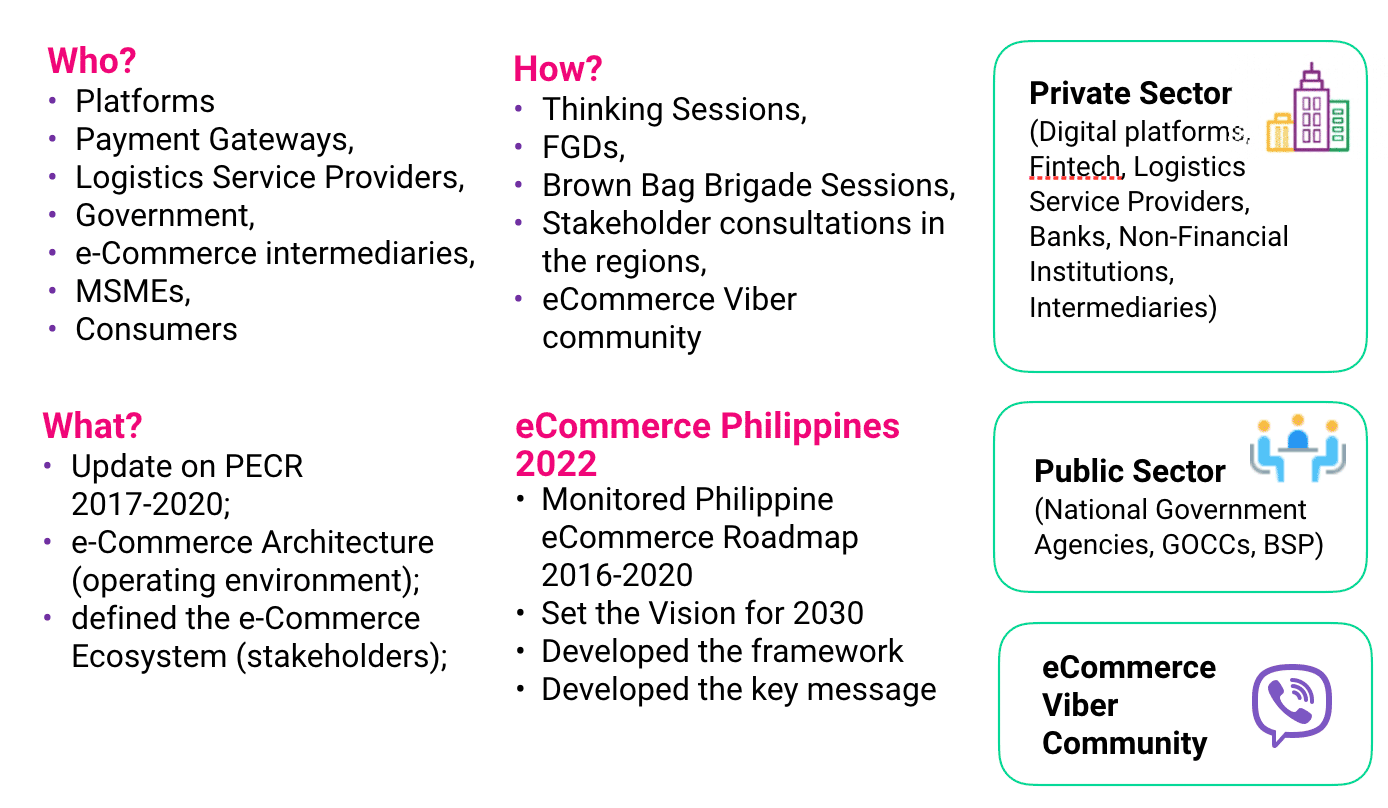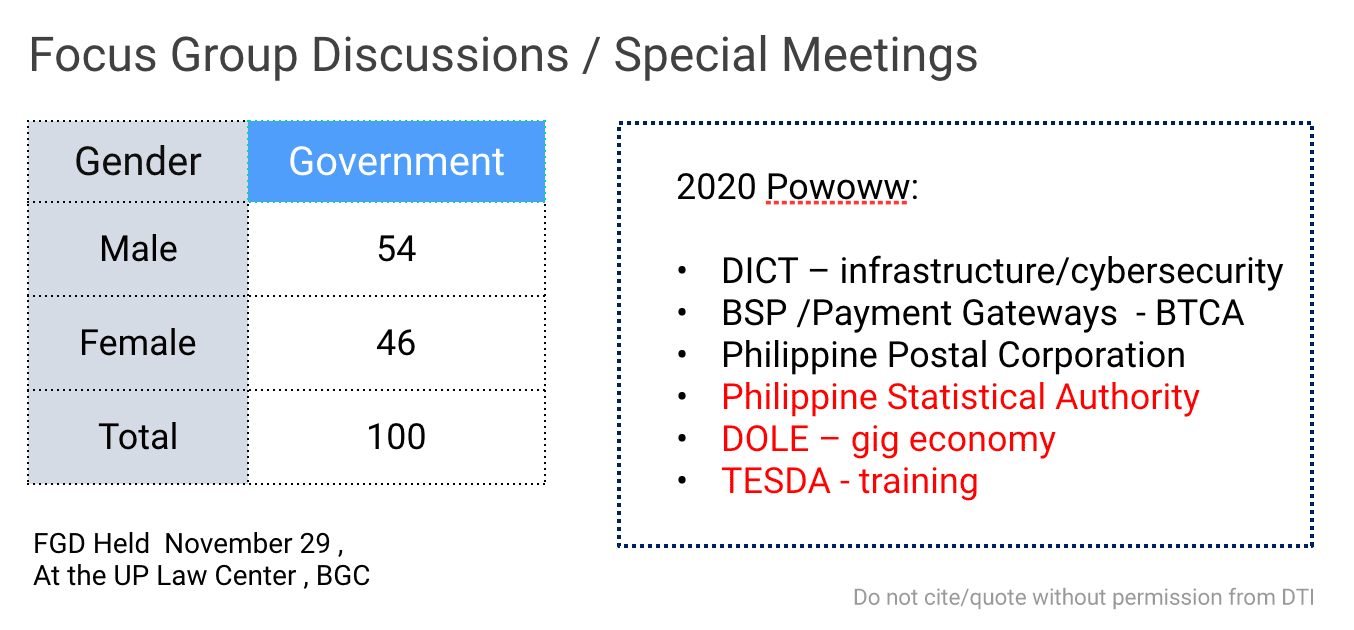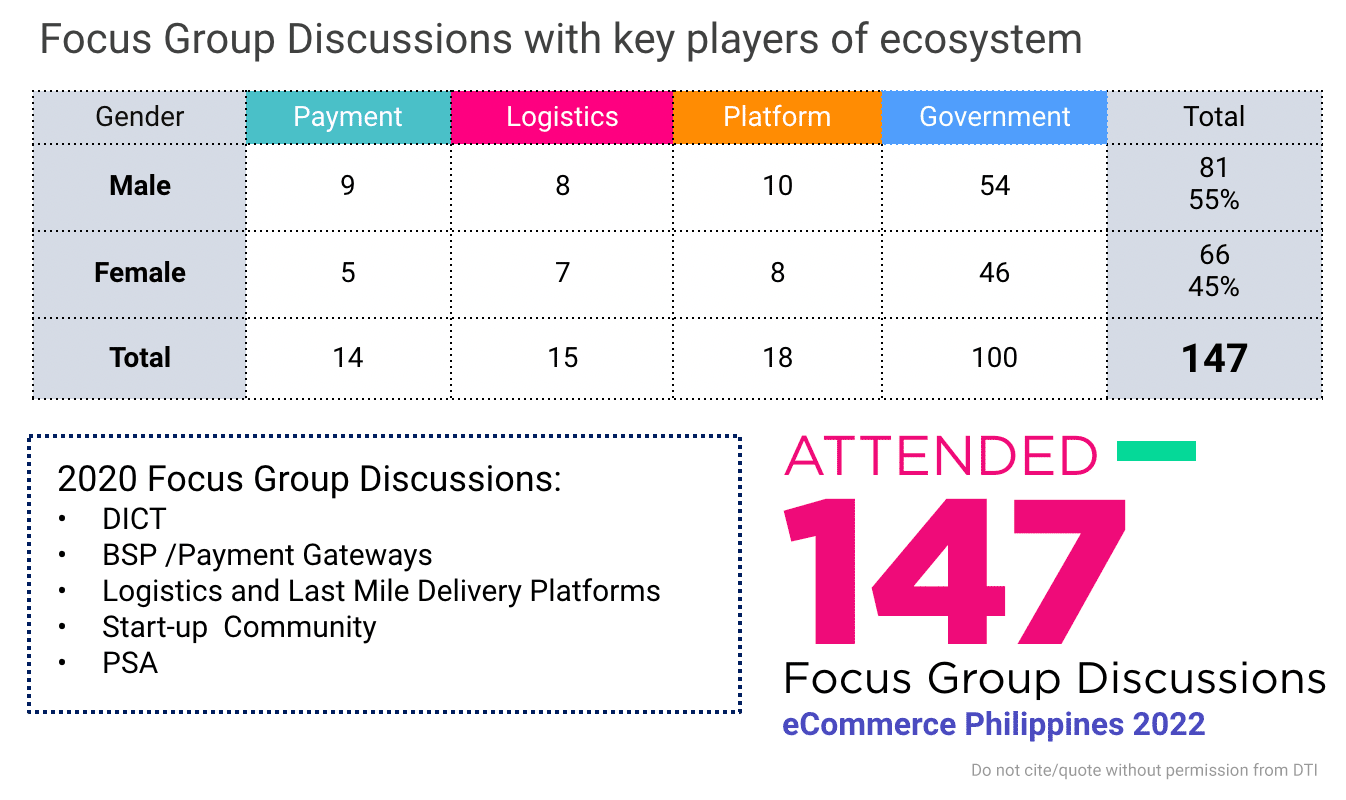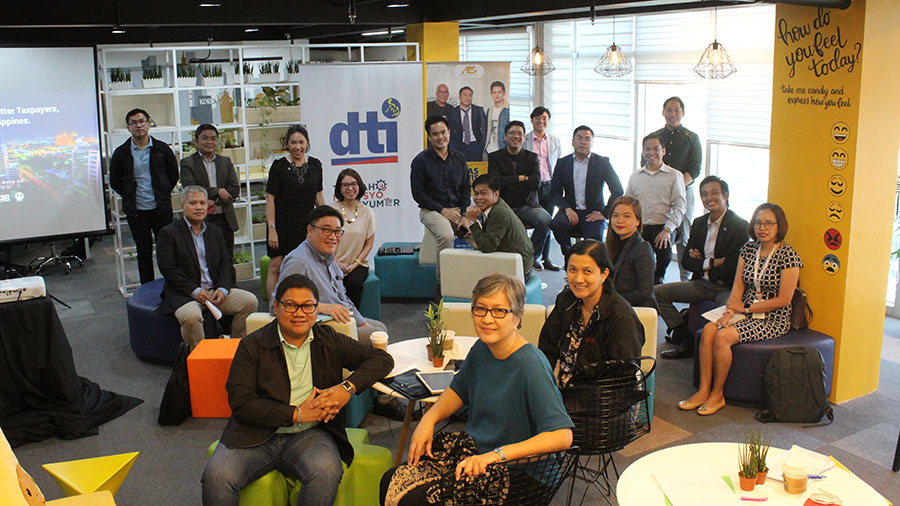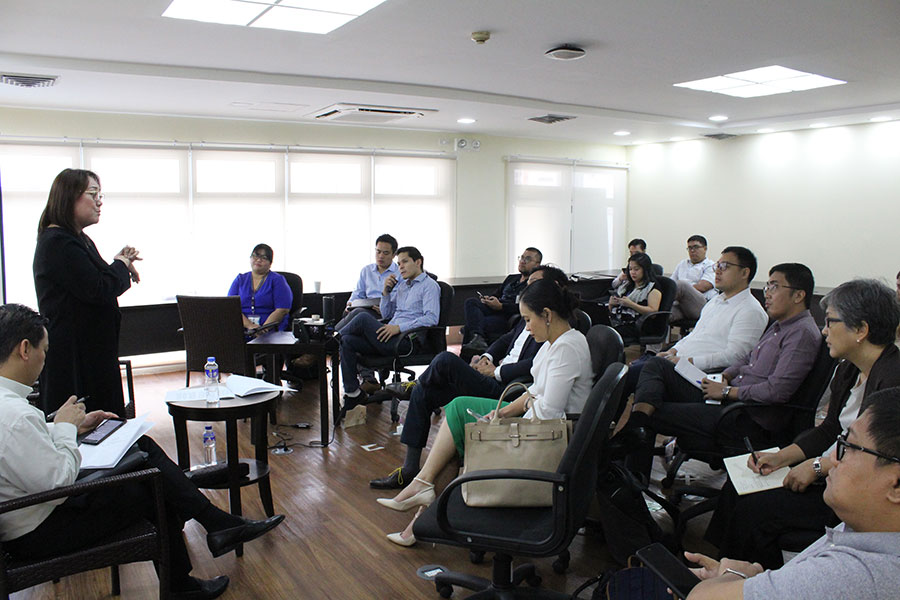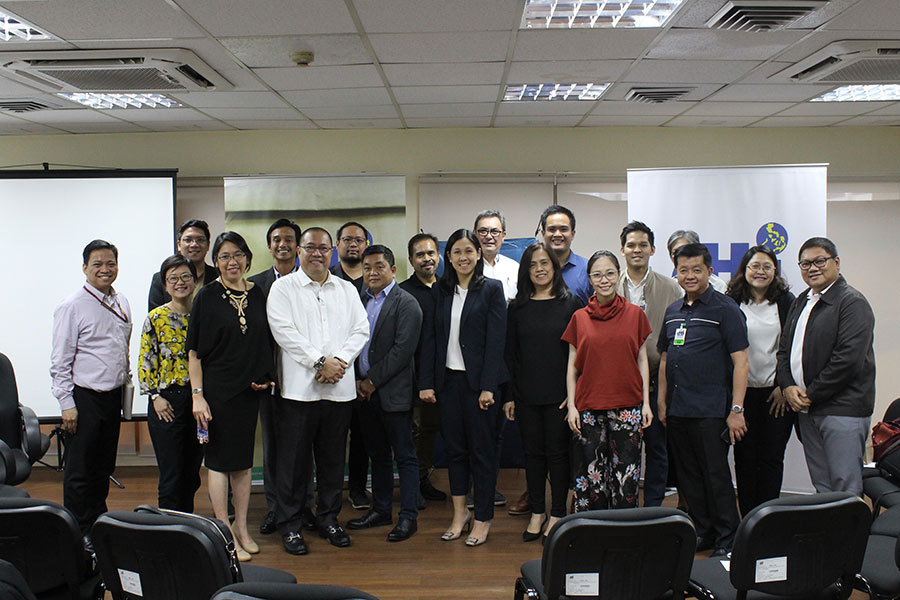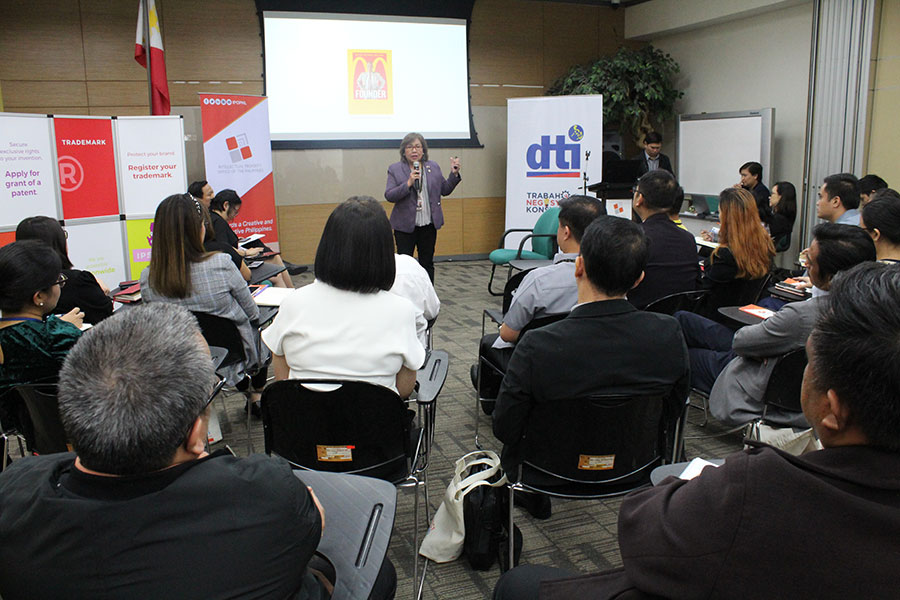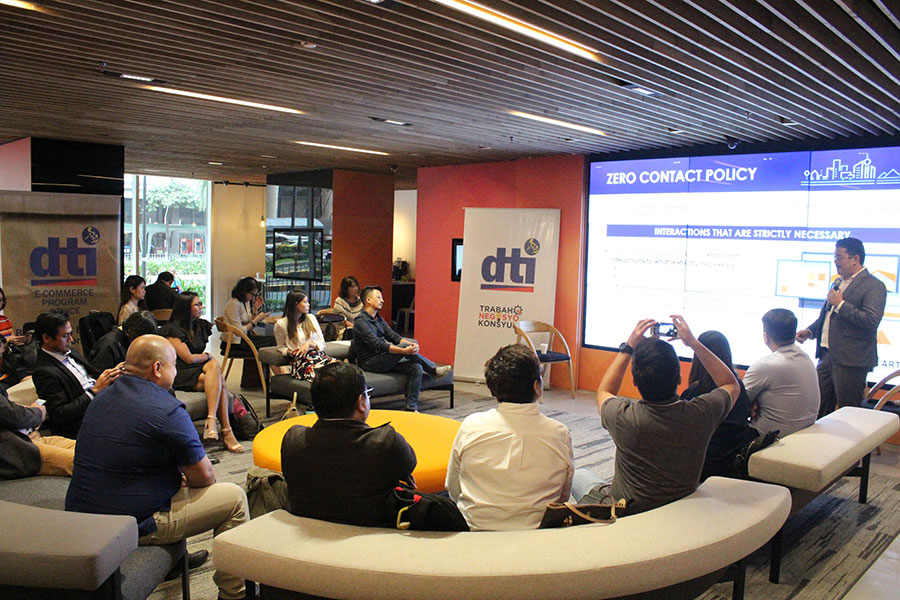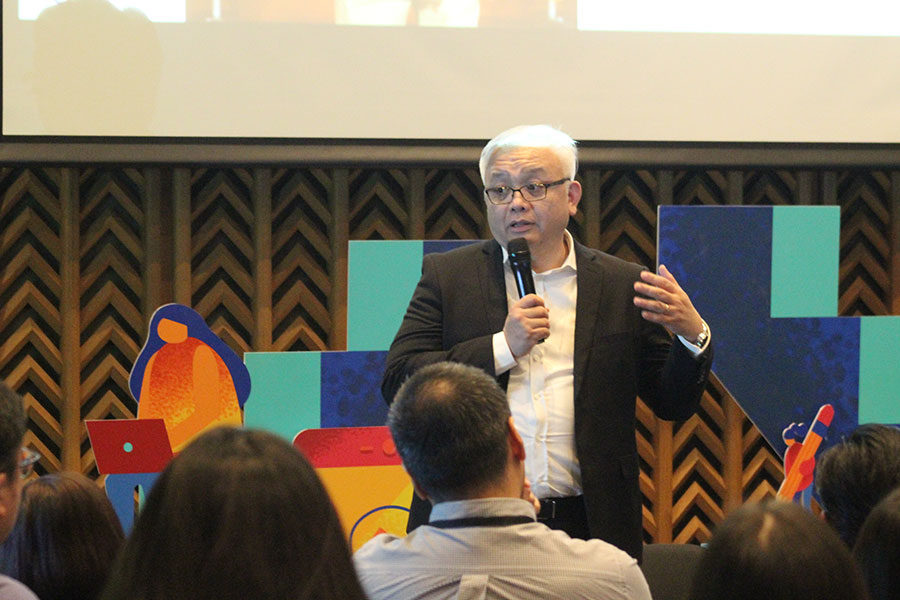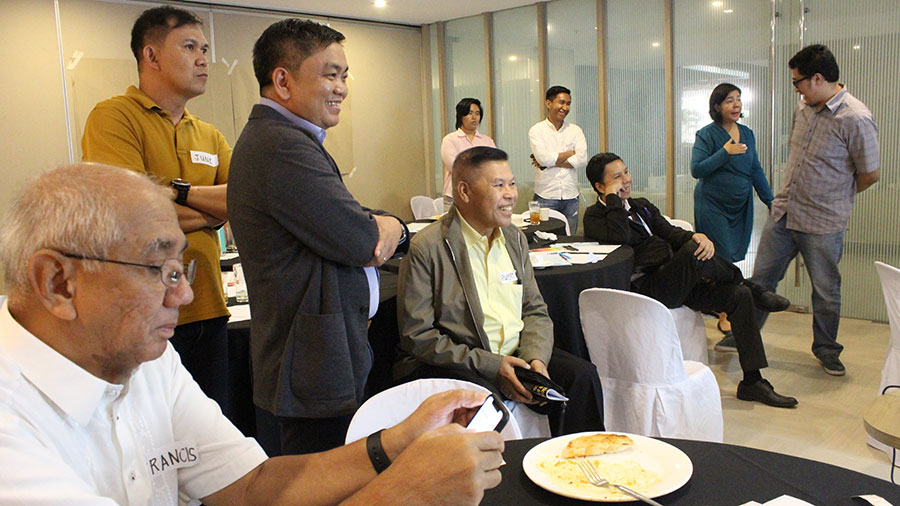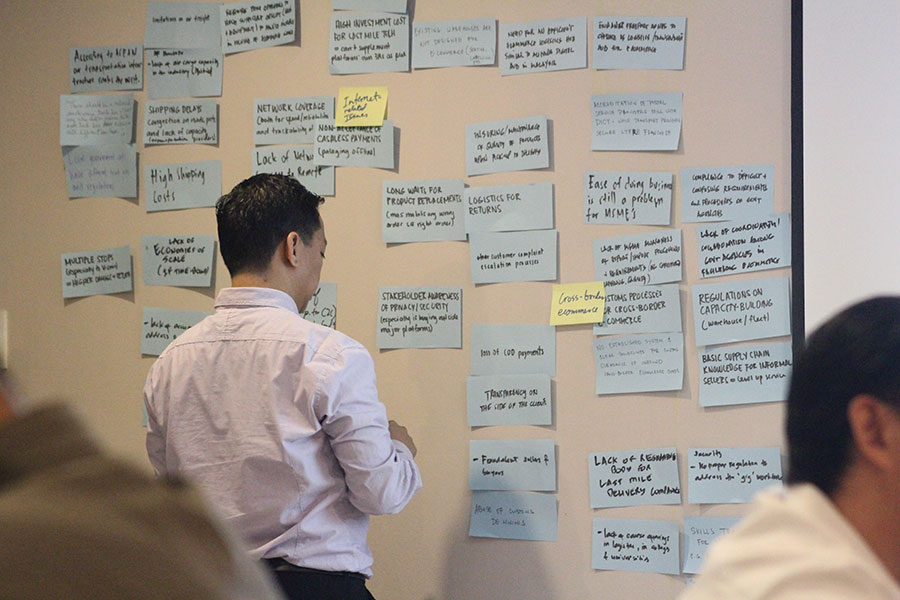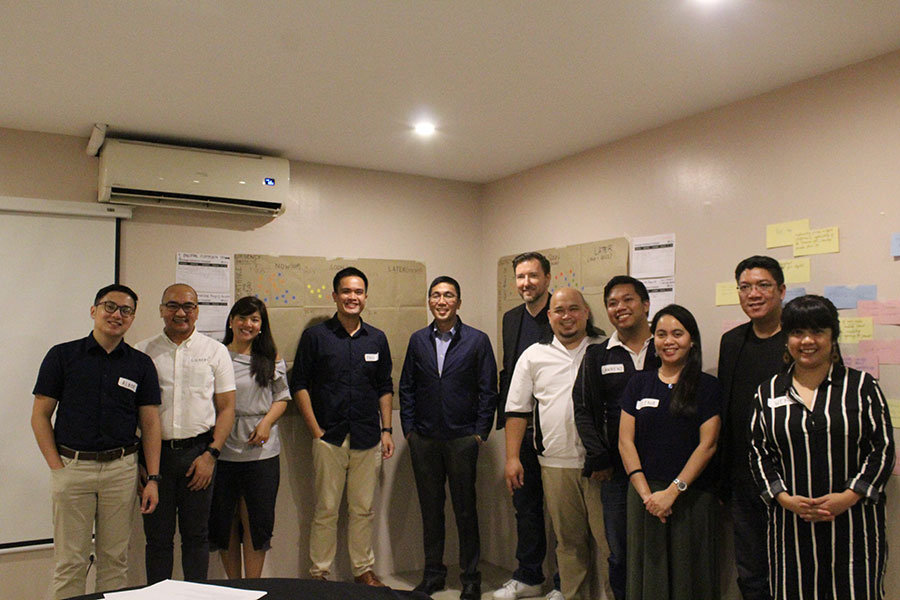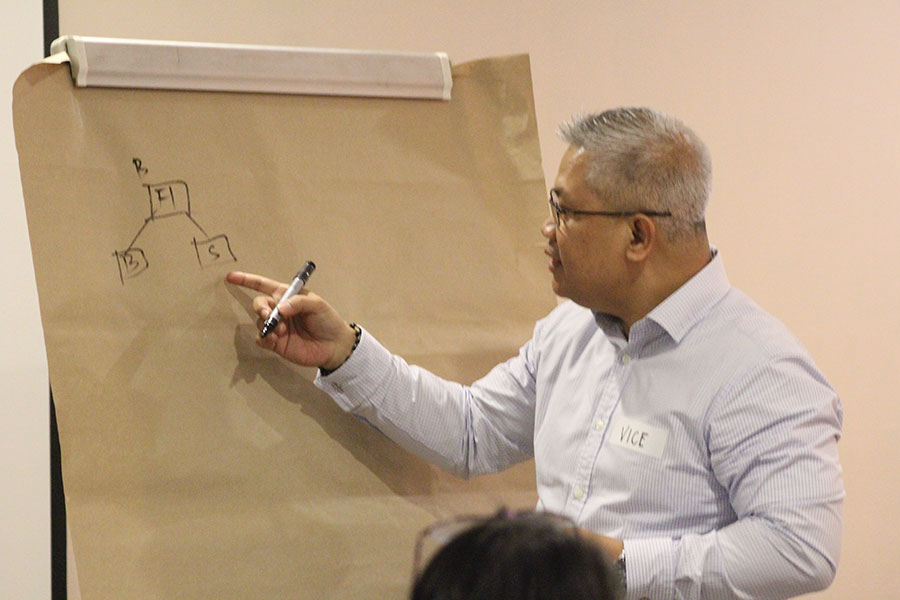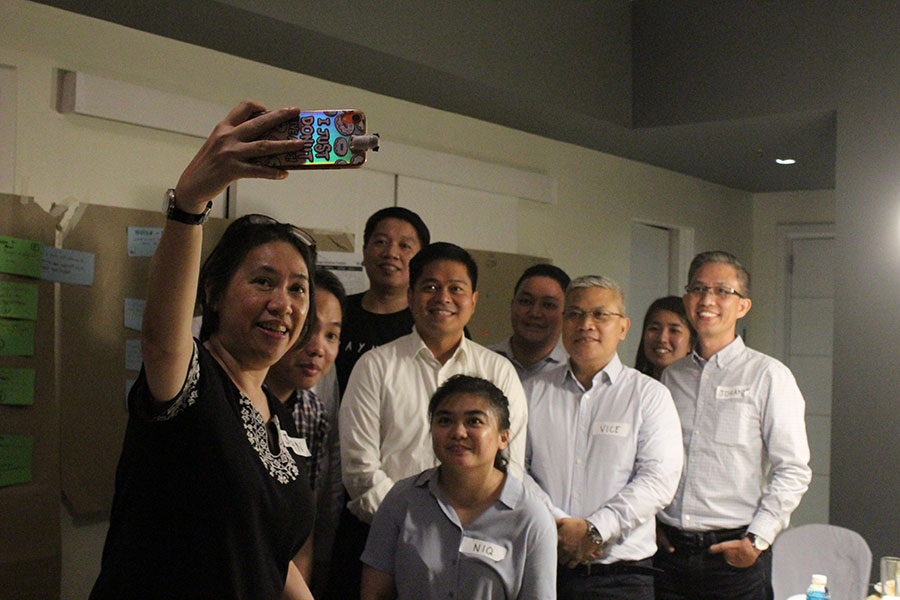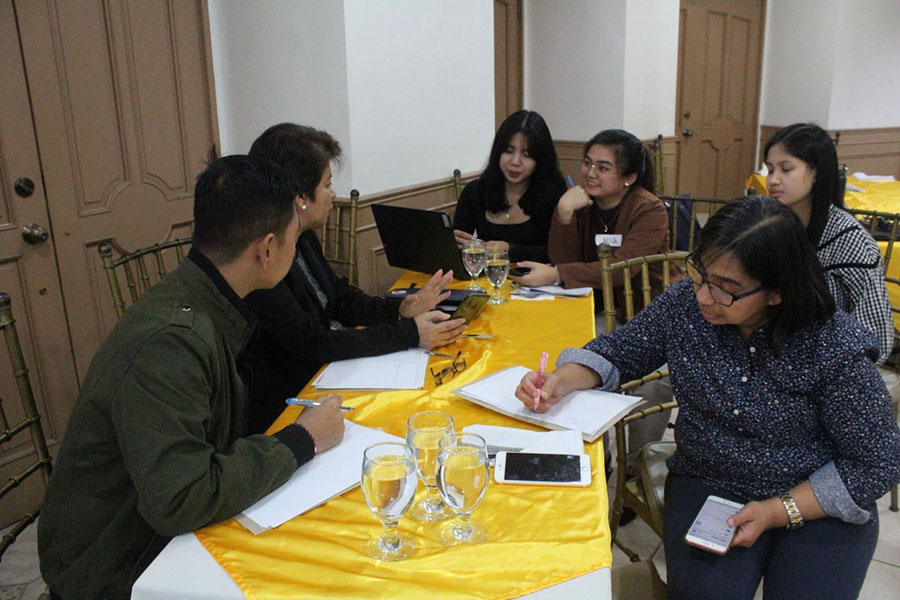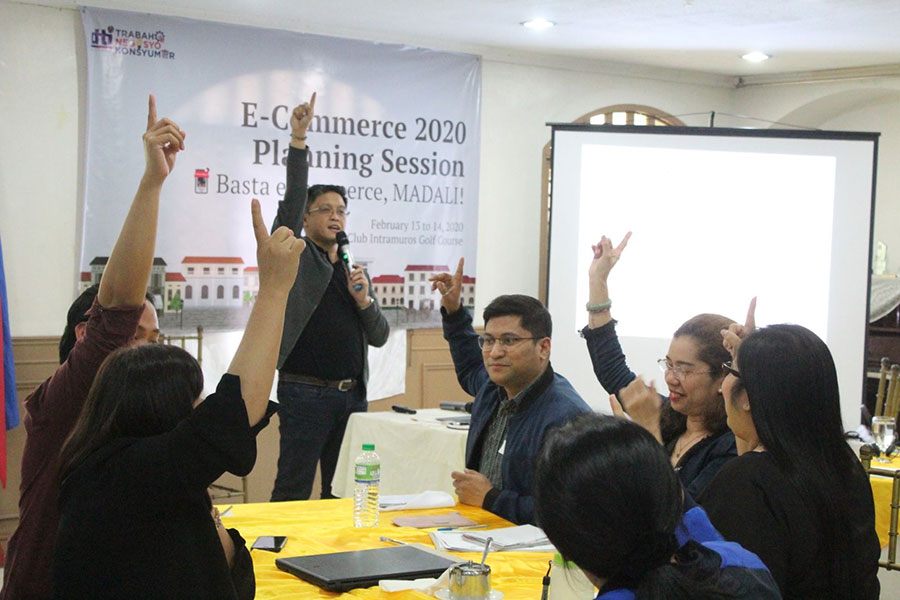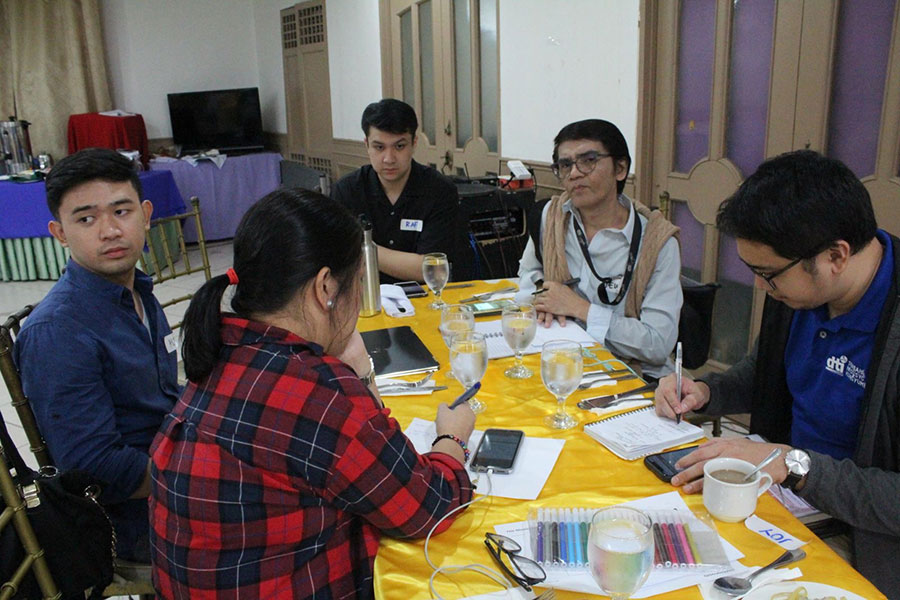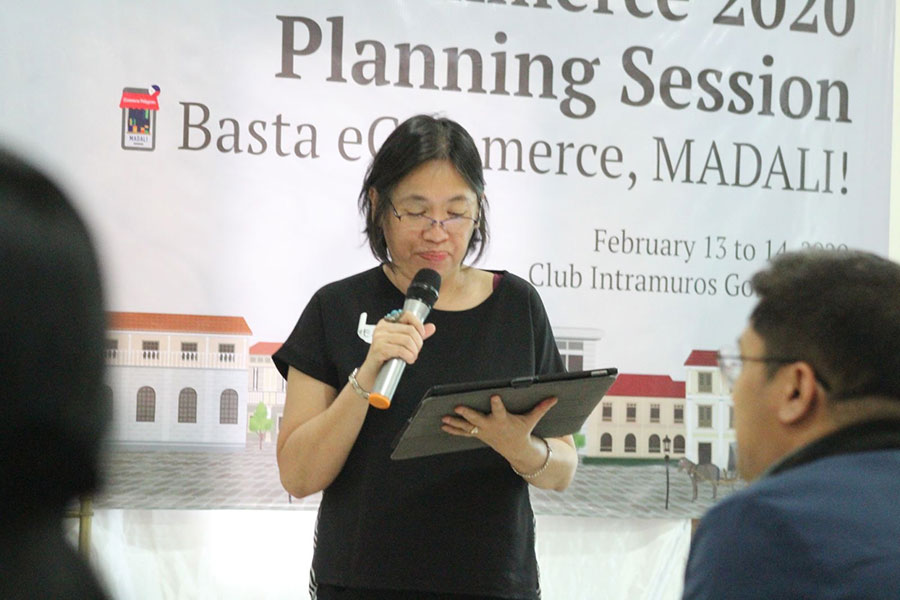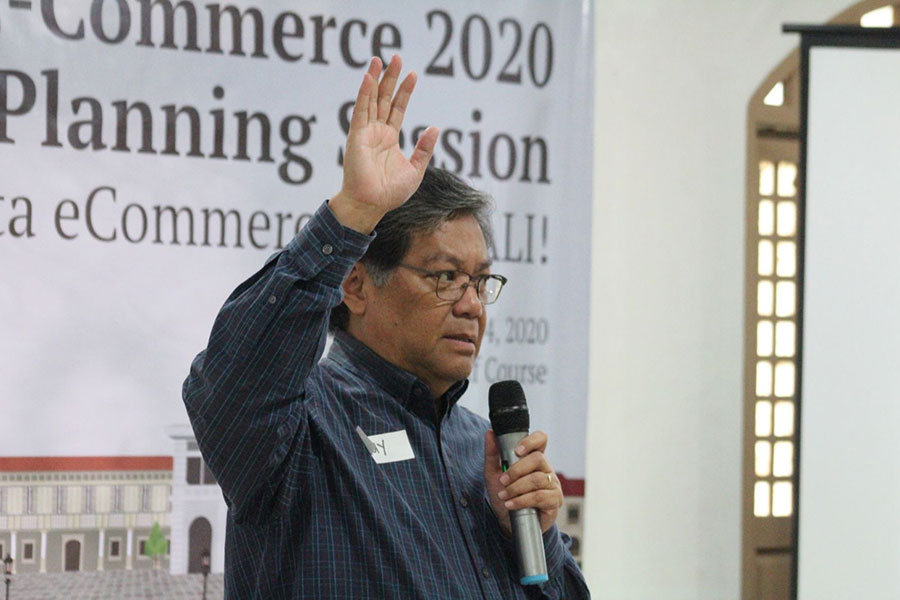About this Roadmap
Crafting the Roadmap
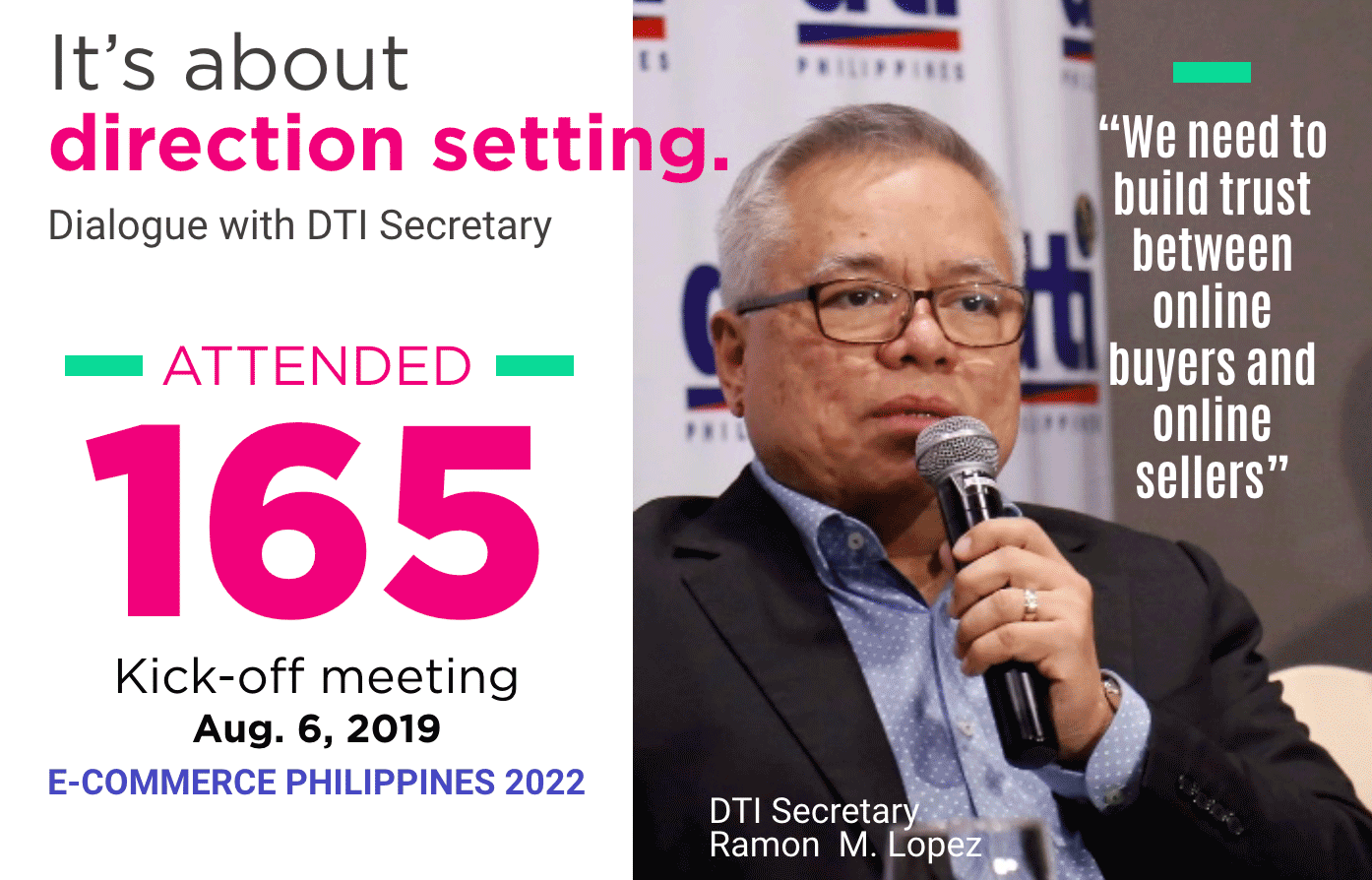
This Roadmap is a product of open dialogue between the public sector and a diversity of stakeholders from the private sector jointly examining the Philippine e-commerce architecture, the industries it covers, and how these interact and affect the whole ecosystem.
Stakeholder engagement was critical, and it was important to establish the ecosystem to ensure a comprehensive and holistic view of e-commerce in the Philippines.
e-Commerce Roadmap: The Process
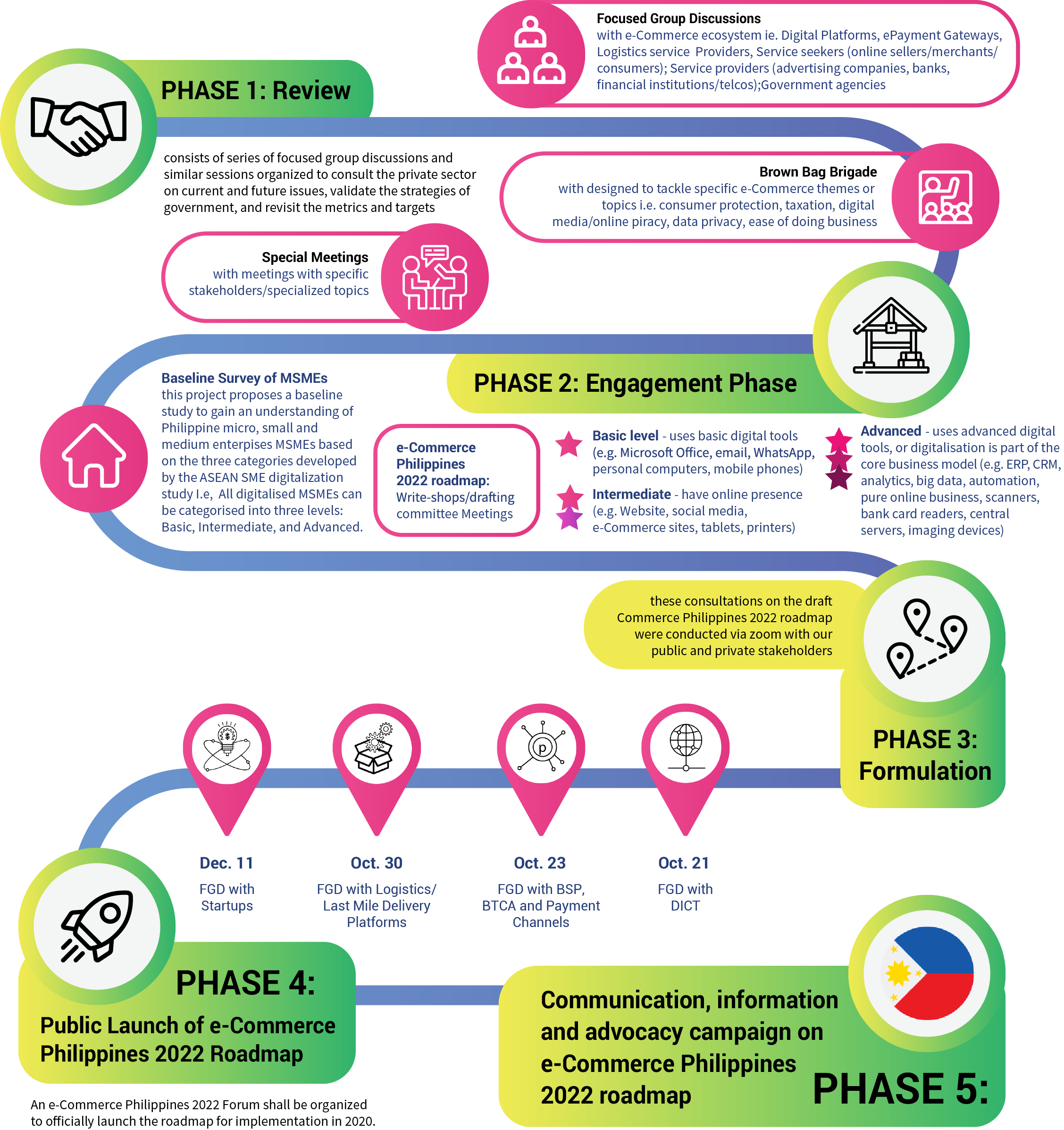
The arrival of the pandemic in March 2020 saw the need to “COVID-proof’ the e-Commerce roadmap. With the imposition of quarantine measures, roadmap formulation changed course from regional roadshows to specialized studies and focused group discussions to ensure that the strategies earlier identified remain valid.
Phase 1 (Review Phase) The roadmap formulation process started with a review of the 2016-2020 Philippine e-Commerce Roadmap to examine how much has been accomplished, what has yet to be fulfilled, and what improvements could be made for the new roadmap. This was done through a combination of desk research and consultations. Understanding the ecosystem, and defining the architecture and identifying the various stakeholders signaled the start of the ecommerce Philippines 2022 roadmap formulation.
Phase 2 (Engagement Phase) for the new roadmap began with the engagement of stakeholders to consult the industry on current and future issues, validate government strategies, and revisit metrics and targets from the previous roadmap. This consisted of a series of focus group discussions (platforms, digital payments, logistics), brown bag sessions, and special meetings with digital platforms, fintechs payment gateways, start-ups, government agencies, and other participants in the e-Commerce ecosystem. Each session tackled specific topics or themes, such as consumer protection, taxation, data privacy, and ease of doing business. Regional roadshows were earlier planned prior to the pandemic, hence a session was conducted in the Cordillera Administrative Region (CAR). Due to quarantine restrictions, the regional roadshow was replaced by zoom sessions with last mile delivery services, and start-ups, and DICT. As a result of these efforts, a set of strategic areas, action items, and initiatives were formulated.
Phase 3 (Formlation Phase) greatly hinged on insights gathered from e-Commerce stakeholders. It involved write-shops/drafting committee meetings, as well as conducting a baseline study to gain an understanding of Philippine micro, small and medium-sized enterprises (MSMEs), and Key Informant Interviews (KII) on digital platforms. Another critical part of the process was to define the legal and regulatory framework for doing e-Commerce in the Philippines. This included a review of the e-Commerce Act of 2000, its implementing rules and regulations (IRR), other pertinent rules and regulations, relevant bills filed in Congress, together with an identification of regulators involved. Lastly, an analysis of e-Commerce was made based on the Structure-Conduct-Performance (SCP) framework, and a direct review of its architecture, players, and the interaction among these. Through these, the framework, strategies, and initiatives under the new e-Commerce roadmap were formed.
Phase 4 is the launching of e-Commerce Philippines 2022 Roadmap.
Finally, Phase 5 focuses on communication, information, and advocacy campaigns on the new roadmap.
All these involve continuous communication and participation from both private and public stakeholders to extract a shared vision for the digital economy, and a roadmap that is truly a convergence of ideas. Through a collaborative approach, a strong foundation is created for the efficient implementation of this roadmap.
2019 Brown Bag Sessions
2019 Focus Group Discussions
2020 Strategic Planning
